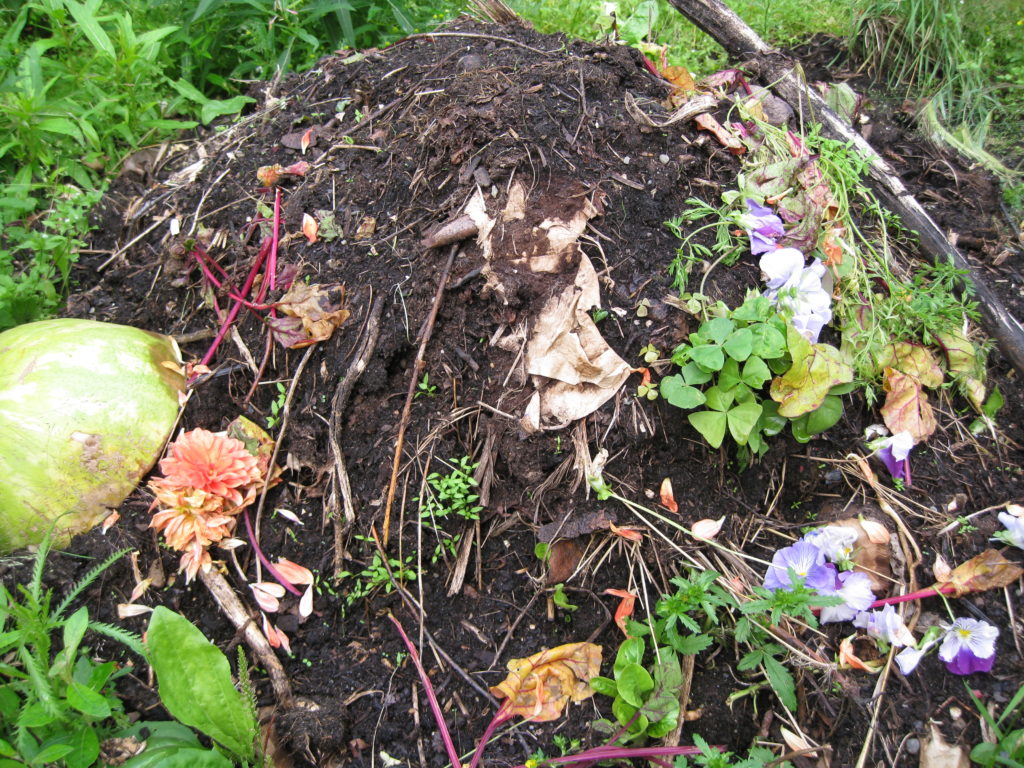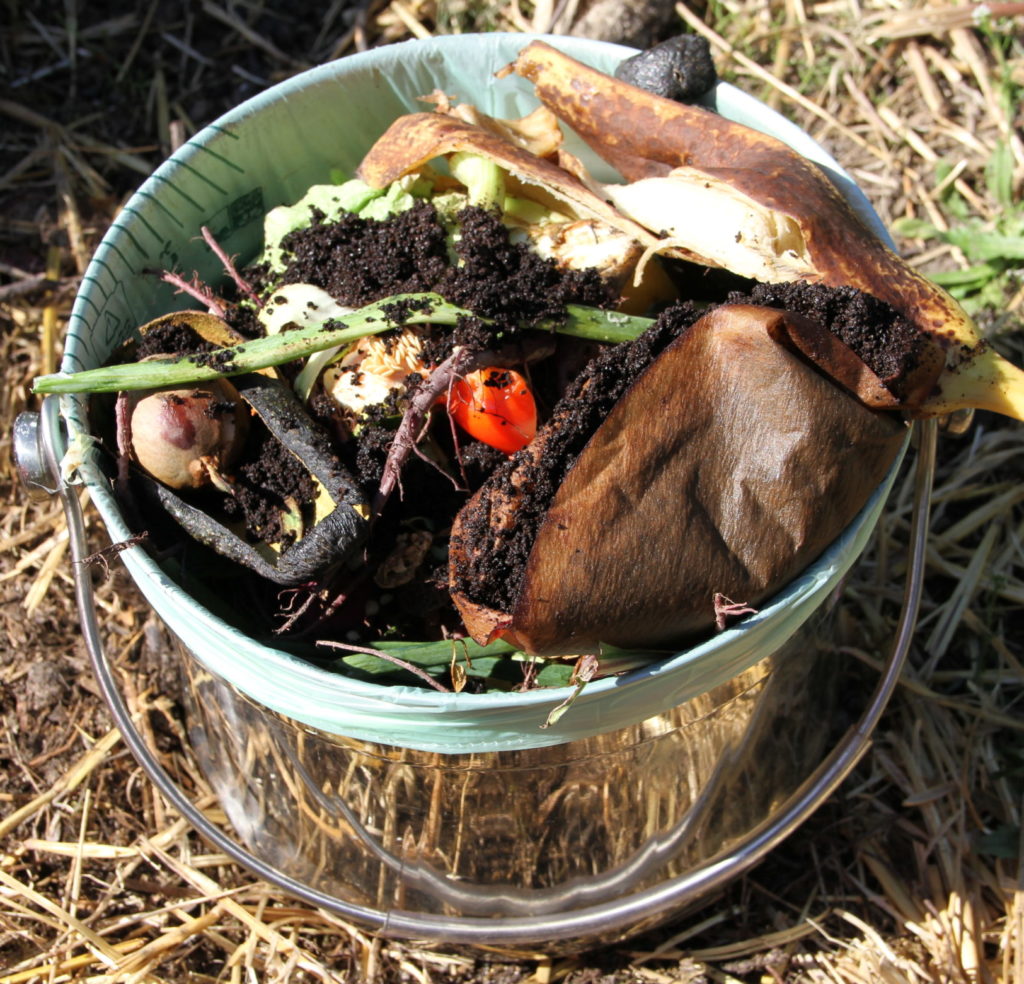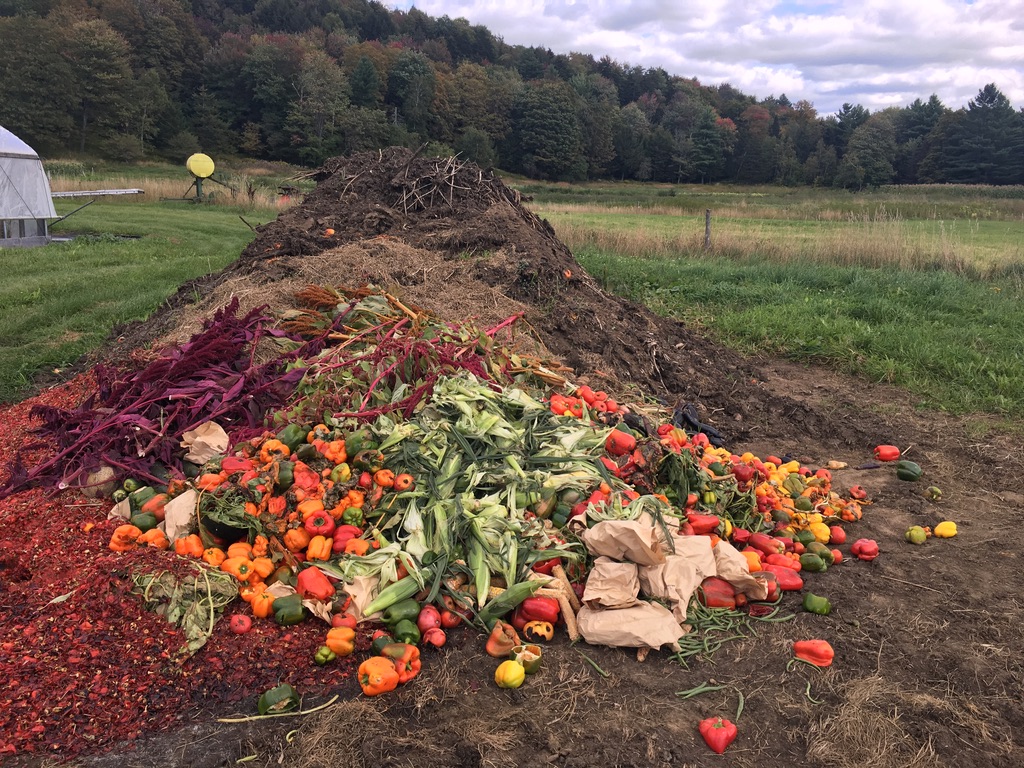Not only will you save money and improve your garden, but you’ll also make fewer trips to the transfer station, all while helping the environment. You can do it in your backyard, under your sink or in your garage.
How can composting save you money? If you have a garden, you’ll buy less potting soil, fertilizer and other soil amendments.

Anytime is a good time to start a compost pile. The fall is an especially good time because it’s a time when people usually have the most compostable waste. You can continue to add compostable food waste throughout the winter. In the spring, your pile will be ready to rot.
Compost (organic matter) is sometimes called “black gold” because it’s so beneficial to your garden.
Composting is arguably the most environmentally friendly form of recycling. Most recycling processes are energy intensive, especially if your recyclable items are shipped out of state to a recycling facility. By composting, you’re helping keep our dump from filling up unnecessarily.
For an average household, about 20 percent of waste is compostable. If you have a yard, garden and are cooking and eating at home frequently, you’ll have a higher percentage of compostable waste. If you live in an apartment without a yard, and eat out or don’t cook from scratch much, you’ll generate less compostable waste.
What can you compost? Stale bread, carrot tops, egg shells, coffee grounds, leaves, herbaceous plant parts and grass clippings, to name a few things. You should refrain from composting meat, dairy, woody plant waste (this will take a long time to break down unless you chop it up), weed seeds, diseased plants and anything toxic. You can compost fish, but it takes some special considerations.

You don’t need a fancy bin for composting, but a bin or fenced area will help keep moose, dogs and other critters from rifling through your pile. It can also be a little more sightly.
There are lots of designs for compost bins. Cost, convenience and the ability to easily turn your pile should be considered in your bin choice.
If you’re fortunate enough to have access to manure – especially chicken manure or cow manure – to incorporate into your compost pile, your compost could provide most of the nutrients your garden needs to thrive. This is organic gardening at its finest. If not, you’ll still need to fertilize your garden in addition to adding compost to your garden.

The other thing to know about composting is there are many ways to do it. Find a way that fits your personality and lifestyle. Here’s what goes into a compost pile in Southcentral Alaska. Bears can certainly be an issue in some parts of Alaska.
Composting is a great activity for kids. My kids have all taken turns being in charge of emptying our food scraps into the compost bin. In addition to helping out, they are learning about food waste, what goes into the compost pile and what doesn’t, how to compost, why the pile heats up, and about the importance of recycling when possible. Haines involved the whole school in composting program.
The Compost Heap: Basic Composting in Alaska will give you more detailed instructions on composting. I talk about the different ways you can compost, the advantages and disadvantages of each way, step-by-step instructions, and, finally, some dos and don’ts of composting. You can base your compost pile off of a recipe included in the publication or simply use a composting calculator:
- Easy composting calculator to use where you select components from a drop-down menu.
- Bare bones compost calculator where you can input all of the numbers.
- Composting calculator in Excel
The Dirt on Compost from Vermont and Cornell Waste Management Institute are also great resources.
Composting is not rocket science, but if you understand the science behind what’s happening, you’ll end up with higher quality product for your garden while minimizing the amount of nitrogen lost to the air and soil, which is better for the environment and your garden.
Previously published in the Fairbanks Daily Newsminer October 10, 2016.
Heidi! Thank you for this resource! We just moved back to Alaska permanently, have our own home, and I’m starting our compost 🙂 It was fun (and informative) to happen upon your article- thank you!!